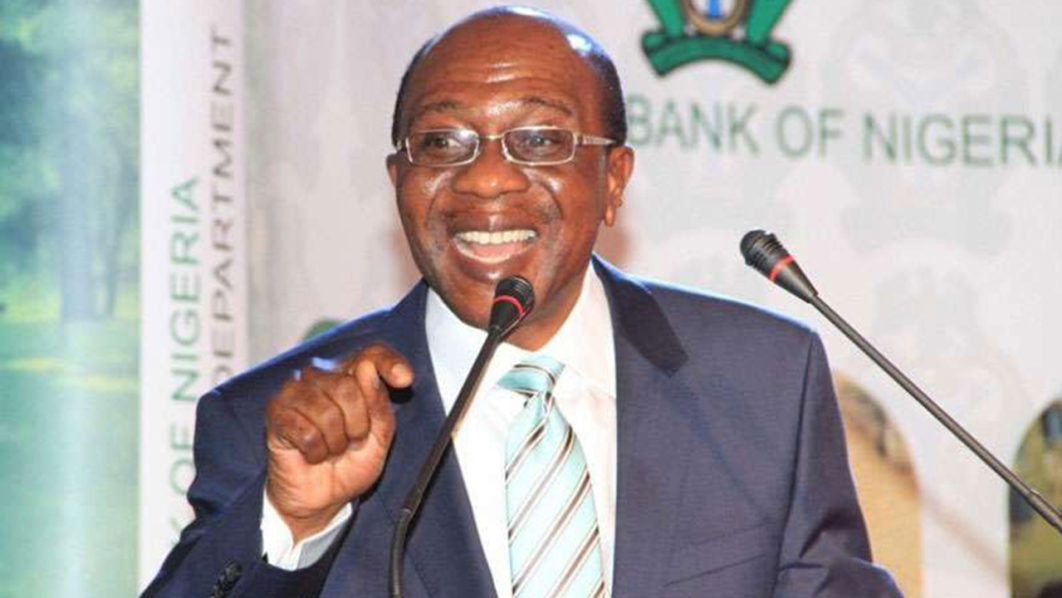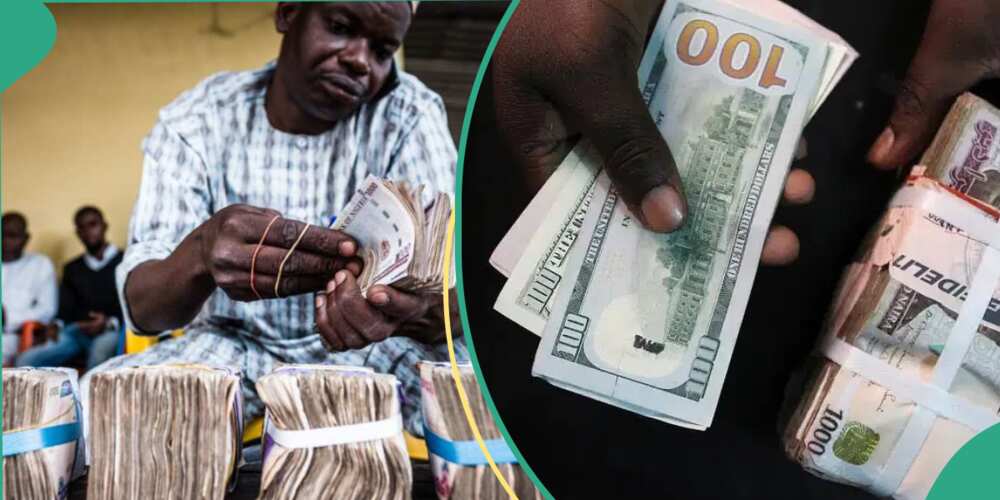Business
Nigerian economy desperately needs diaspora remittances, says Emefiele

Central Bank of Nigeria (CBN) Governor, Mr Godwin Emefiele, has highlighted the importance of diaspora inflows to the economy, stressing the country will be in a position to reap its benefits if remittance infrastructure improves.
He spoke on the newly introduced “CBN Naira 4 Dollar Scheme,” an initiative aimed at incentivising senders and recipients of international money transfers.
Emefiele spoke at a webinar organised by Fidelity Bank Plc, entitled, “The New FX Policy, Implications and Positive Impact on Diaspora Investments”.
The CBN governor explained that the new policy was expected to attract diaspora remittances through the official foreign exchange channels as well as support forex stability in Nigeria.
The CBN had earlier in a circular dated March 5, 2021, signed by A.S. Jibrin, on behalf of the Director, Trade and Exchange Department, stated that the new initiative would become effective on Monday and Saturday, May 8, 2021.
In line with this initiative, all recipients of diaspora remittances through CBN’s licensed International Money Transfer Operators (IMTOs) shall henceforth be paid N5 for every $1 received as remittance inflow.
The apex bank said in the circular, “The CBN shall through commercial banks, pay to remittance recipients the incentive of N5 for every $1 remitted by sender and collected by the designated beneficiary.
“This incentive is to be paid to recipients whether they choose to collect the United States dollar as cash across the counter in a bank or transfer same into their domiciliary account. In effect, a typical recipient of diaspora remittances will at the point of collection, receive not only the USD sent from abroad, but also the additional N5 per USD received.”
Providing more insight into the new policy, Emefiele said it would offer Nigerians in the diaspora a convenient way to send remittances, adding that it would also aid diaspora investments.
He said, “Our policy on the administration of remittance flows is aimed at increasing the transparency of remittance inflows, reducing rent-seeking activities, and providing Nigerians in the diaspora with cheaper and more convenient ways of sending remittances to Nigeria.
“In addition, we believe that this new policy measure will encourage banks and financial institutions to develop products and investments vehicles geared towards attracting investments from Nigerians in the diaspora. We have no doubt that these changes can help to finance a future stream of investment opportunities for Nigerians living abroad.”
However, Emefiele said, “Yet, the introduction of the new policy presented new challenges, as operators and remittance service providers were initially unable to integrate with the agent banks.” He said the central bank would continue to work to resolve the intermittent interface challenges in the marker.
Emefiele disclosed that the average cost of sending $200 worth of remittance to Nigeria from the US was about 4.7 per cent.
He said, “Countries in South Asia, such as Pakistan and Bangladesh, are aware of this impact and they introduced reimbursement schemes to support inflows.
“In Pakistan, the scheme, which is known as free send, has enabled record amount of inflows of over $2 billion a month even during the COVID-19 pandemic. Bangladesh introduced its own scheme in June 2019, which is a two per cent rebate on remittance inflows. Following this action, they have also seen a 20 per cent boost in remittance inflows.
“On the topic of round tripping, there is a maximum amount that you can remit through an IMTO. You can’t send a $100,000 through an IMTO. The CBN’s action, while it does not go far enough in offering total reimbursements, is a step in the right direction in reducing the cost burden for Nigerians remitting funds to Nigeria.”
Emefiele also disclosed that the central bank had been engaging the IMTOs and the banks to ensure more convenience in fund remittance.
He said, “In an effort to reduce the cost burden of remitting funds to Nigeria by working Nigerians in the Diaspora, the Central Bank of Nigeria has introduced a rebate of N5 for every $1 of fund remitted to Nigeria, through IMTOs licensed by the central bank. This rebate will be provided to the bank accounts of beneficiaries, following receipt of remittance inflows.
“We believe this new measure will help to make the process of sending remittance through formal bank channels cheaper and more convenient for Nigerians in the diaspora. This new policy is expected to take effect on the 8th of March 2021.
“Accordingly, the CBN strives to constantly improve our remittance infrastructure, ease the process of international money transfer and simplify the experience for senders and recipients. In this regard, we note that the efficiency of remittance services, especially as provided by the IMTOs is critical to our aim of boosting inflows. We would constantly seek to fine-tune our policies to mitigate factors that affect the quality of service customers face when using IMTOs.”
Business
Breaking: Dangote brings diesel prices down to N1000/litre

Breaking: Dangote brings diesel prices down to N1000/litre
Dangote Petroleum Refinery has announced a further reduction in the price of diesel.
When it commenced operation a few weeks ago, Dangote Petroleum Refinery pegged the price of diesel as N1,200.
While rolling out the products, the refinery supplied at a substantially reduced price of N1,200 per litre three weeks ago, representing over 30 percent reduction from the previous market price of about N1,600 per litre.
READ ALSO:
- Kano anti-corruption agency slams fresh charges against Ganduje
- Troops kill ISWAP Commanders, 30 other terrorists
- Ooni of Ife dismisses agitators of Yoruba nation
However, on Tuesday, a further reduction of N200 was noticed in the price, with the product now pegged at N1,000.
This significant reduction in the price of diesel, at Dangote Petroleum Refinery, is expected to positively affect all the spheres of the economy and ultimately reduce the high inflation rate in the country.
The President of Dangote Group, Aliko Dangote, had during the Eid-el-Fitr celebration said if the cost price of diesel comes down, the inflation rate will be substantially reduced.
Dangote spoke when he visited President Bola Tinubu in his residence in Lagos State to celebrate the end of the Ramadan fast with him.
Breaking: Dangote brings diesel prices down to N1000/litre
Business
Naira records five-month highest gain, sells below N1000/$ at parallel market

Naira records five-month highest gain, sells below N1000/$ at parallel market
The naira continued its positive showing against the United States dollar on Monday, selling below N1000/$ in some segments of the parallel market.
Newstrends reports that the Federal Government, groups and some individuals have mounted a spirited campaign for those hoarding the dollars to push them out as naira continues to appreciate.
On Monday, the naira was offered in some parts of Lagos and Abuja between N995 and N1,050 per dollar in the parallel market. It was N1,230/$ on Friday.
The latest gain, being over five-month highs, came in the wake of the Iranian attack on Israel and a rise in the crude oil price.
Goldman Sachs, American investment bank economists, had earlier predicted that the naira’s bullish momentum on the foreign exchange market would likely cause it to trade for less than N1,000 per US dollar in the coming months.
According to a report by Nairametrics, the group claimed that the rally in Nigerian currency helped recover from large losses after two devaluations since last June by being bolstered by capital inflows and successive interest rate hikes.
In March, Goldman Sachs projected that the Naira would appreciate to N1,200 per dollar in 2024.
At the official foreign exchange market, the rate was put at N1,136/$ in contrast with N1,205/$ last Friday.
The top bank has implemented several policy initiatives in recent months to bring stability to the foreign exchange market.
The CBN increased interest rates to 24.75% at the most recent meeting of the Monetary Policy Committee (MPC), which helped it recover losses from the two devaluations that occurred since June of last year.
Further gains for the naira result from the CBN’s ongoing intervention, which involves selling foreign exchange to Bureau De Change operators at a revised rate.
The market anticipates higher inflows of US dollars from the sale of foreign currency bonds in the second quarter as disclosed by Finance Minister Wale Edun.
The Federal Government has just offered high-yield short-term debt products at a premium to entice overseas capital into the economy.
The Middle East’s geopolitical unrest and
Notwithstanding a drop in Nigeria’s production volume, crude oil prices have risen beyond $90.
Nigerian grades of oil are trading at a premium to the ICE Brent benchmark.
The Middle East’s geopolitical unrest and the anticipation of an Iranian government strike on Israel caused oil prices to soar.
Business
Breaking: Nigeria’s inflation rises to 33.2%, says NBS

Breaking: Nigeria’s inflation rises to 33.2%, says NBS
The National Bureau of Statistics (NBS) says the nation’s inflation rate rose to 33.2 per cent for the month of March 2024.
This represents a 1.5 per cent increase over 32.7 per cent recorded in February 2024.
The NBS disclosed this in a new report released on Monday.
It explained that the rise was primarily due to higher costs of food, beverages, energy, and housing. Compared to February 2024, the inflation rate in March increased at a slower pace, with food inflation reaching 40.01% year-on-year.
NBS attributed the spike in food prices to the rising costs of items like garri, millet, yam tubers, and others. On a month-on-month basis, food inflation slightly decreased to 3.62% in March 2024.
Urban inflation also increased to 35.18% year-on-year in March 2024, while rural inflation stood at 31.45%.
Core inflation, which excludes volatile agricultural products and energy, was 25.90% year-on-year in March 2024.
Overall, the rising cost of living in Nigeria is evident in the significant increase in inflation rates across different categories.
It is crucial for policymakers to address these challenges to alleviate the financial burden on the population.
-

 metro6 days ago
metro6 days agoTribute: C.K George, Epitome of Courage, by Kunle Awobodu
-

 metro6 days ago
metro6 days agoTroops arrest ISWAP commander involved in Army General, 3 soldiers’ killing in Borno
-

 News5 days ago
News5 days agoBREAKING: Ex-Abia gov, Ogbonnaya Onu, is dead
-

 metro7 days ago
metro7 days agoBandit kingpin, Dangote, siblings killed in Katsina
-

 News6 days ago
News6 days agoBetta Edu threatens to sue BBC, alleges defamation
-

 News6 days ago
News6 days agoI never said Aiyedatiwa is Tinubu’s preferred candidate in Ondo – Interior Minister
-

 metro6 days ago
metro6 days agoJUST IN: Actor Junior Pope resuscitated after death scare
-

 metro6 days ago
metro6 days agoPolice arrest female kidnapper in Ebonyi, rescue six abducted children





















You must be logged in to post a comment Login